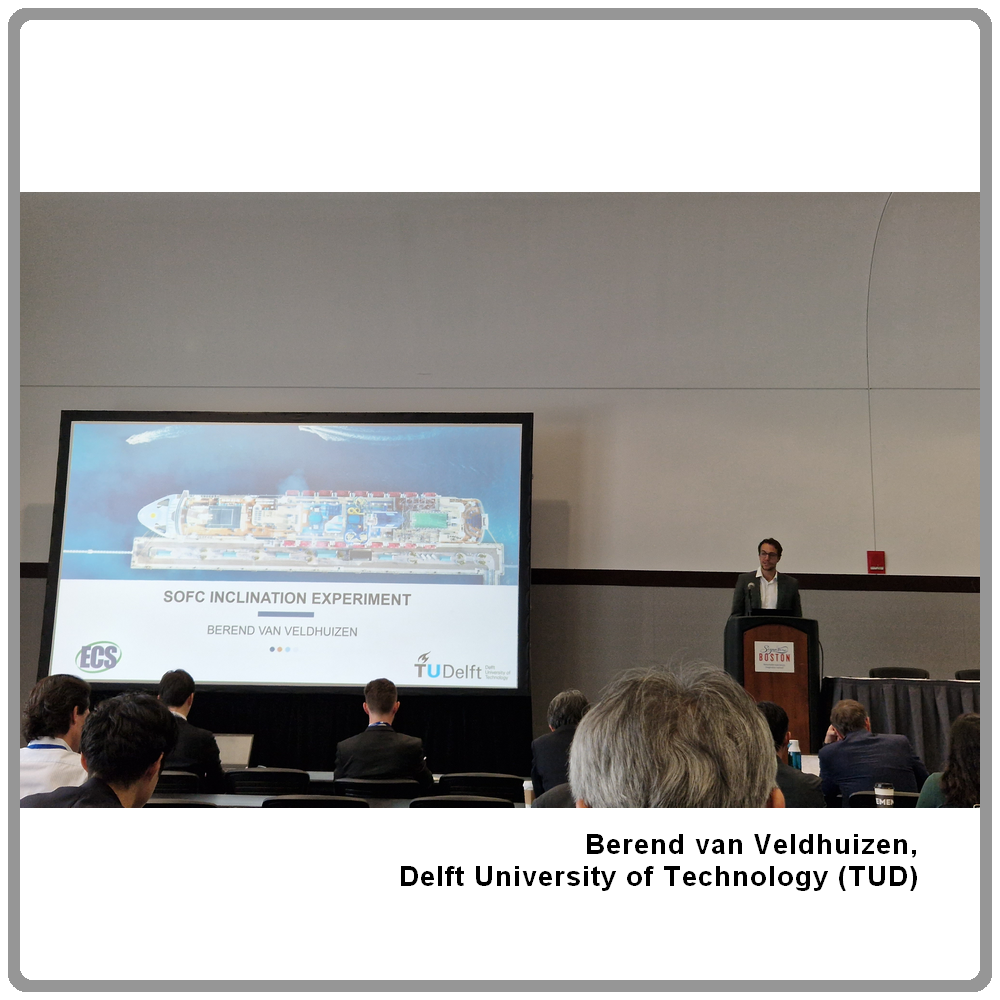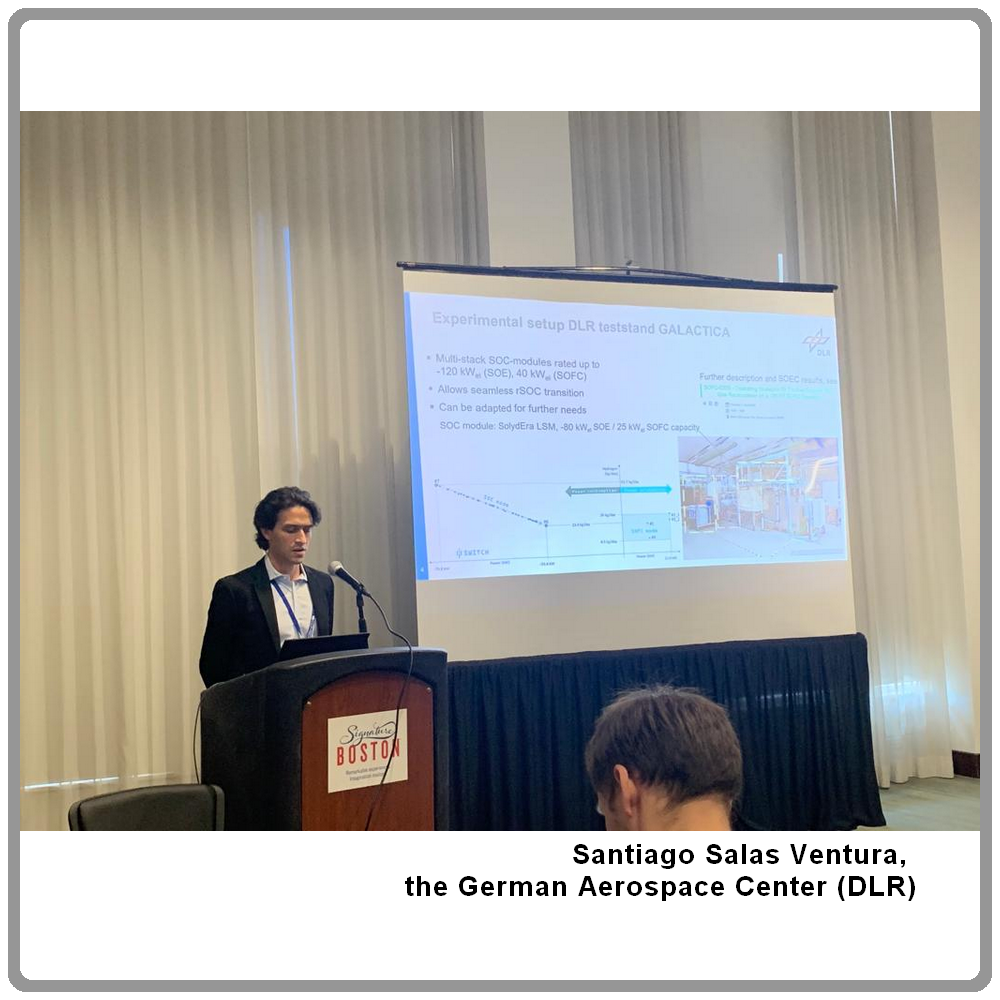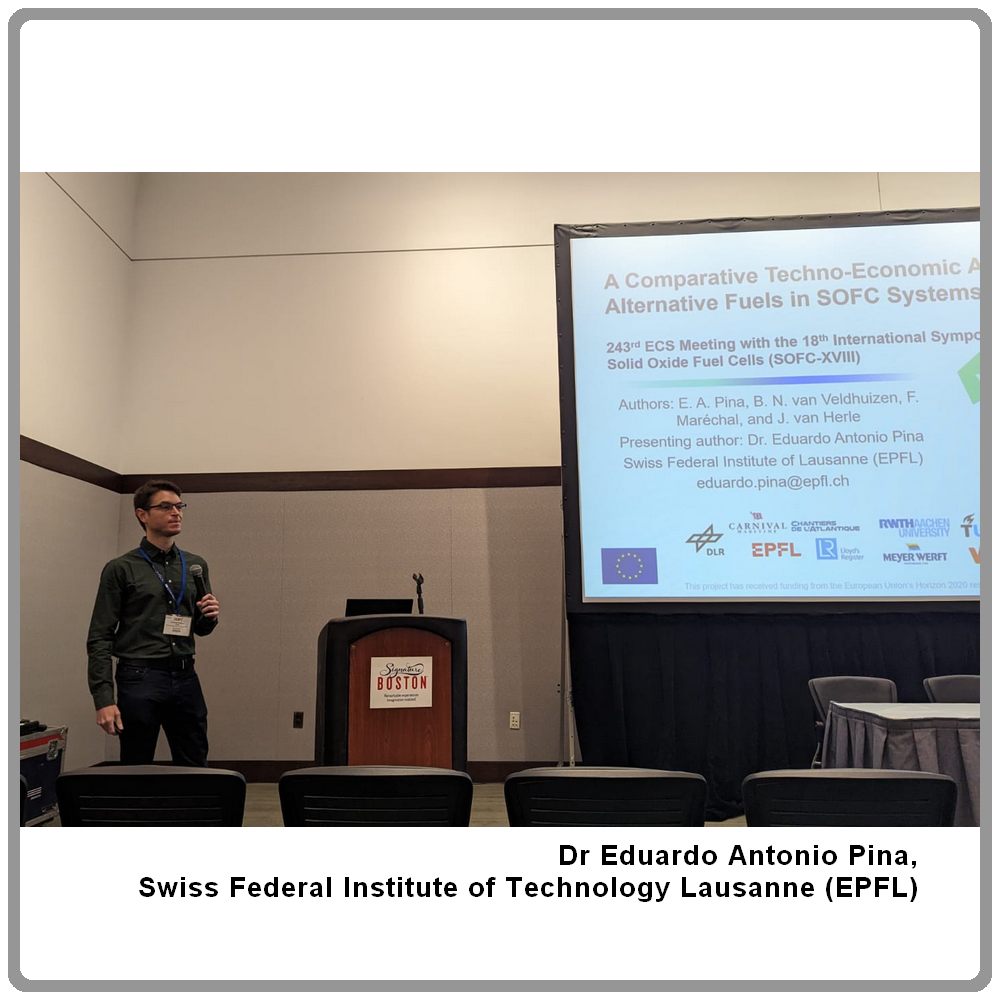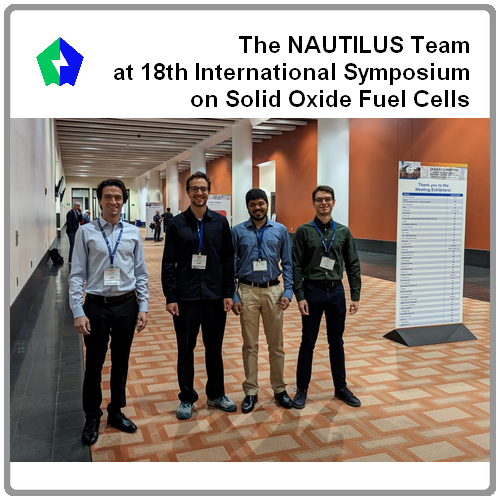At the turn of May and June, the NAUTILUS team had the honour of presenting their research at the 18th International Symposium on Solid Oxide Fuel Cells (SOFC-XVIII) in Boston, USA.
These distinguished researchers shared their insights during the conference:

Berend van Veldhuizen from the Delft University of Technology (TUD) focused on evaluating the impact of marine conditions on the operation, safety, and lifetime of SOFC systems. By simulating ship motions and inclinations, his study provided valuable information for the design and implementation of SOFC systems in seagoing vessels. The findings will contribute to the development of appropriate regulations for maritime applications. More

Santiago Salas Ventura from the German Aerospace Center (DLR) discussed operating strategies for transient operation of solid oxide cell (SOC) reactors. His research aimed to suppress thermal gradients during mode transitions and power level variations. The presentation included experimental findings and a transient model, advancing the understanding and development of SOC technology. More
Download Santiago Salas Ventura's presentation (PDF)

Dr Eduardo Antonio Pina from the Swiss Federal Institute of Technology Lausanne (EPFL) presented a techno-economic assessment of alternative fuels in SOFC systems for cruise ships. His work analysed the cost performance of different fuels, including liquefied natural gas (LNG), methanol, diesel, ammonia, and hydrogen. The assessment, conducted under the NAUTILUS project, provides valuable insights for decision-makers in designing energy-efficient and low-emission systems for the maritime industry. More
Download Dr Eduardo Antonio Pina's presentation (PDF)
Amogh Amladi from the University of Groningen (RUG), as pictured in the photo, is also a partner in the NAUTILUS project and was present in Boston. While his conference contribution was related to a different research topic, he took advantage of the occasion to meet the other partners in person and discuss the progress made under the NAUTILUS project. RUG, as a project partner, is actively involved in the development of the Genset and its integration strategy onboard ships. Additionally, RUG has contributed to future fuel analysis, techno-economic analysis, and has provided assistance and expertise to TUD during the testing of the fuel cell unit under simulated sailing conditions.
Read more on the SOFC testing on the inclination pod
The collective expertise of these researchers highlighted the significance of the conference in advancing solid oxide fuel cell technology and promoting innovation in clean and efficient energy conversion. Their presentations contributed to the exchange of knowledge among conference participants, fostering further advancements in the field.
This project has received funding from the European Union’s Horizon 2020 research and innovation program under grant agreement No 861647.
Stay in touch with us!
#NAUTILUS_2020 #propulsionsystem #sustainableshipping #battery #fuelcell #cruiseships
***
⇒ Follow us on Twitter/LinkedIn to be on board.
Follow #NAUTILUS_2020
NAUTILUS is a short for Nautical Integrated Hybrid Energy System for Long-haul Cruise Ships.

This project has received funding from the European Union’s Horizon 2020 research and innovation program under grant agreement No 861647.

